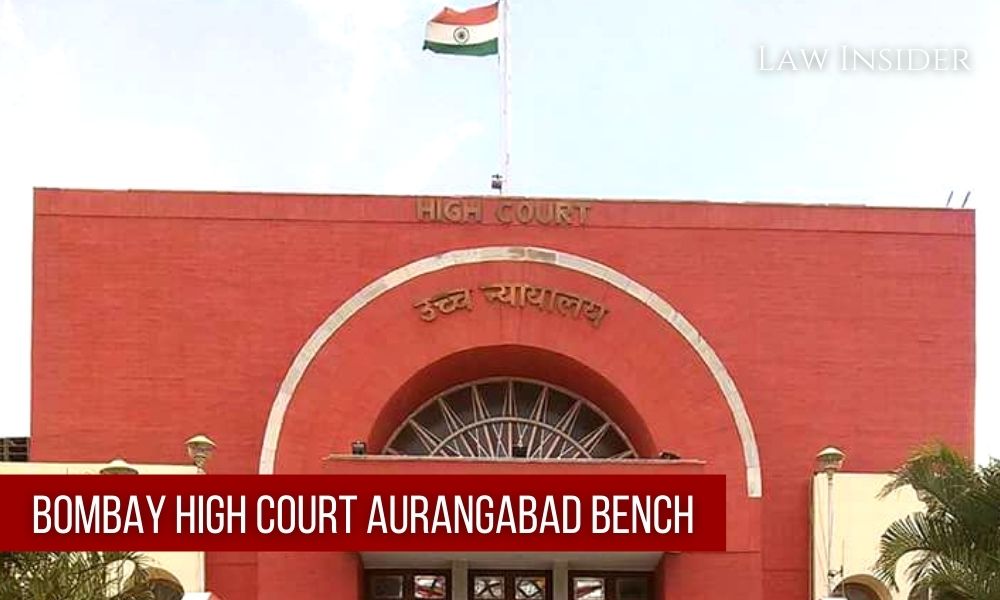Bhuvana Marni
Published on: October 28, 2022 at 20:22 IST
The Bombay High Court recently noted that a married woman being asked to help do household work does not entail that she is being treated like a maid servant.
The court further stated that it was difficult to determine if the husband and in-laws were cruel to the wife without a description of the alleged actions.
“If a married lady is asked to do household work definitely for the purpose of the family, it cannot be said that it is like a maidservant.”
“If she had no wish to do her household activities, then she ought to have told it either prior to the marriage so that the bride-groom can rethink about the marriage itself or if it after marriage, then such a problem ought to have been sorted out earlier”, the court stated.
An application under Section 482 of the CrPC was being dealt with by a division bench consisting of Justice Vibha Kankanwadi and Justice Rajesh S. Patil of the Aurangabad bench. a woman filed an FIR against her husband and his family, which the court quashed.
The applicants were booked for offences punishable under Sections 498-A (cruelty by husband and relatives), 323 (voluntarily causing hurt), 504 (intentional insult), and 506 (criminal intimidation) of the IPC.
The wife was treated decently for one month after marriage, and then, according to the FIR, she was treated like a maidservant. Her father was asked for Rs. 4 lakhs by her husband’s family to buy a four-wheeler.
It was said that her husband physically and mentally tormented her when she said that her father couldn’t afford it.
She gave birth to a son, and the husband’s family brought her to the hospital. The gestation time is not through, according to the doctor.
She continued by saying that her mother-in-law and sister-in-law then physically attacked her and accused her of defrauding them.
She was informed that she could only live with her father if she was paid Rs 4 lakh to her mother-in-law and sister-in-law, who had gone to her father’s home. According to the FIR, they had also assaulted her at the time.
The wife had filed numerous complaints against her ex-husband and his family, according to attorney Sagar Bhingare who represented the husband and his family.
Either the complaints were withdrawn or the defendants were found not guilty. These instances demonstrate that the wife has a pattern of levelling these accusations.
Bhingare further asserted that the wife filed a report on September 9, 2020, and the marriage took place on December 12, 2019.
On June 27, 2020, the claimed incident at her father’s home allegedly took place. It isn’t easy to comprehend that something like this would have happened just 5–6 months after the wedding.
On February 28, 2020, the spouse also bought a four-wheeler for over 17 lakhs. Therefore, it is not even a consideration to demand money from the wife’s father in order to buy a car.
The wife’s attorney and APP S. J. Salgare for the wife argued that since the investigation had already been submitted and there was sufficient evidence to support the charges, the FIR should not be quashed.
The wife’s FIR only vaguely claims that she was treated like a maidservant after being treated properly for a month, the court noted. The court further stated that she had not provided specifics regarding the alleged verbal and physical abuse she had endured.
“Mere use of the word harassment “mentally and physically” is not sufficient to attract ingredients of Section 498-A of IPC”, the court stated.
The court further stated that unless the accused’s actions are specified, it is impossible to say whether they constitute cruelty.
The woman did not clearly explain in her FIR how she realized she was pregnant, the judge further remarked. There is no question about the pregnancy’s end and the child’s delivery unless she was carrying the baby. According to the court, these details appear to be purposely vague.
The court noticed that the FIR did not contain any information on the assault by the spouse who claimed she had cheated on them. According to the court, such omnibus accusations do not meet the requirements of Section 498-A of the IPC.
The court also noted that, if the alleged assault by the wife’s mother-in-law and sister-in-law took place at her father’s home, the evidence does not demonstrate why the wife went to her parent’s house and why she remained silent for more than two months before filing the report.
The court ruled that just because she had complained about her first husband and his family, it did not follow that she was accustomed to making these allegations and demanding money.
The court determined that the claims made by the wife against her husband and in-laws in this instance are not prima facie sufficient to trigger section 498A of the IPC.
“The allegations that have been made and the collection of evidence is not sufficient even at this prima facie stage to attract the ingredients of an offence punishable under Section 498-A of IPC..”
“..further as regards offence under Sections 323, 504, 506 read with Section 34 of IPC is concerned, it is in fact already conferred under Section 498-A of IPC and unless those other offences are shown which would amount to “cruelty”, an offence under Section 498-A of IPC cannot be made out and, therefore, it would be a futile exercise to ask the applicants to face the trial.”
With the above observations, the court set aside the FIR and the proceedings pending before Additional Chief Judicial Magistrate Nanded against the husband and his family members.
Case Title – Sarang Diwakar Amle & Ors. vs. State of Maharashtra and Anr.

